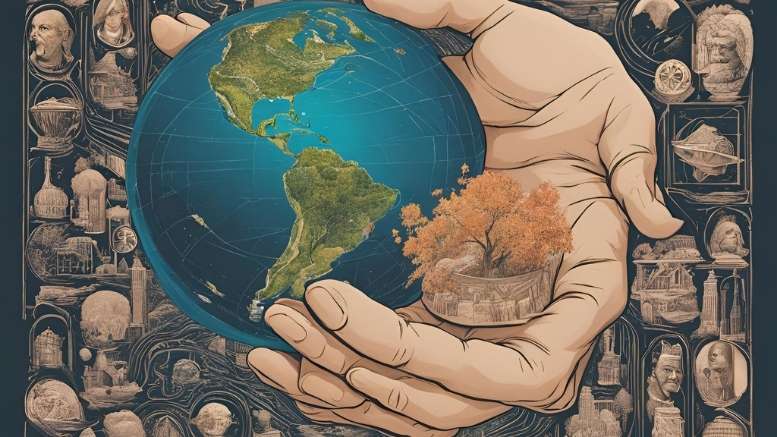Activism
How to use non electric energy where you are

One strategy being pursued to address the climate crisis has been to shift from fossil fuels to electric power as the energy source for common activities. But electric power has environmental costs, too, even when renewable energy is used to create it. Consider using human power and passive renewable energy instead.
Take action
- There are many ways to produce hot water using solar energy. Mother Earth News’ article How to Build a Passive Solar Water Heater describes five simple, inexpensive heaters for home use. LowImpact.org’s book Solar Hot Water: Choosing, Fitting and Using a System, provides a detailed overview of the topic, whether you choose to build a system yourself or hire a plumber and use off-the-shelf components.
- Solar Cookers International has been working for decades to design and promote passive solar cooking, especially in the “less developed” parts of the world. They provide solar cooker construction plans for many kinds of cookers, including a portable one made from cardboard and aluminum foil.
- Preserving food by canning or freezing usually requires fossil-fuel or electrical energy, but there are other ways to preserve food that are just as effective. The National Center for Home Food Preservation has put together a comprehensive overview of preservation methods for various foods. You can also build your own solar fruit dehydrator with these plans from North Dakota State University.
- Learn about various non-electric tools and techniques for satisfying basic needs from the Atelier Non-Electric in Japan. The text is in Japanese, but many of the design images are self-explanatory.
- Low-Tech Magazine contains a wealth of thought-provoking articles, from discussions of “obsolete technologies” to the possibilities of low-tech solutions to modern problems: a great way to encourage out-of-the-box thinking.
- Often the best solutions are the simplest. Rather than use electricity and fossil fuels to dry clothes, hang them on a clothesline. Rather than building fleets of electric-powered vehicles, promote walking and bicycling. Find other ways to satisfy genuine needs without using mechanical, fuel-based or electric means, and rethink technology with the help of No-Tech Magazine.
Get inspired
- In Can Decreix, a degrowth community outside the French town of Cerbère, the embrace of simple technologies is a joyful way of life. The use of solar ovens and cookers is standard practice, and their many self-designed tools include a pedal-powered washing machine. Website in French and English.
- Maya Pedal is a Guatemalan nonprofit that turns donated bikes into water pumps, grinders, threshers, tile makers, nut shellers, blenders, trailers and more. They also recondition bikes for their traditional use as transportation. In English or Spanish.
Activism
Nonviolent resistance in the age of authoritarianism

From the US to Palestine and beyond, people are standing up to power — with strategy, courage and solidarity.
Peaceful movements are rising: from Hebron to Harvard, from feminist foreign policy to frontline protests. Authoritarianism is gaining ground, fuelled by rhetoric like that of Donald Trump and echoed by global copycats.
But so is nonviolent resistance.
This isn’t your usual Q&A. It’s a real talk on how nonviolent resistance is evolving — and where it’s heading next.
Join us for a conversation about what it really takes to resist — and endure — in a time of shrinking civic space.
Featuring:
- Jamila Raqib, Executive Director of the Albert Einstein Institution and legacy holder of 2012 hashtag#RightLivelihood
- Laureate Gene Sharp, the world’s leading thinker on strategic nonviolent action.
- Kerstin Bergeå, Chair of Svenska Freds, Sweden’s largest and the world’s oldest peace organisation.
- Hosted by Juanita Esguerra Rezk, PhD. of Right Livelihood.
We’ll dive into:
- How resistance survives under repression
- The power of unlikely alliances
- What changes when women lead
- Staying resilient when the pressure hits
Courtesy of Right Livelihood
Activism
How Ethical Community Leaders Are Driving Systemic Change Around the World

Mobilized News Editorial Feature
At a time when cynicism toward politics is high and global systems appear rigged against the most vulnerable, a new kind of leadership is taking root—not in the corridors of power, but in the streets, villages, neighborhoods, and digital commons.
These leaders don’t wear suits or sit on high stages. They are midwives, farmers, youth mentors, solar tech trainers, community organizers, and elders. They listen more than they speak. They build with others, not for others. And they are rewriting the very definition of what it means to lead in the 21st century.
This is the story of ethical community leadership—a global groundswell of people committed to systemic change, rooted in justice, accountability, care, and regeneration. And it’s working.
Mobilized News Editorial Feature
A Shift from Top-Down to Bottom-Up
In India’s Maharashtra state, a women-led collective called Swayam Shikshan Prayog has empowered over 100,000 rural women to lead in climate-resilient farming, health, and education. Their model? Train women farmers as decision-makers—not beneficiaries—while restoring ecological health.
In Colombia, the Guardians of the Atrato River, a court-recognized legal entity composed of Indigenous and Afro-descendant community leaders, have been granted rights to represent the river in court—a historic case of environmental personhood anchored in ancestral leadership and ecological stewardship.
In Jackson, Mississippi, Cooperation Jackson is building a community-controlled network of cooperatives, housing, and alternative education, rooted in Black liberation and economic democracy. Their People’s Assembly is a living example of participatory governance done right.
In Nairobi’s Mukuru informal settlement, Muungano wa Wanavijiji—a grassroots federation of the urban poor—is redefining slum upgrading by organizing communities to map their own infrastructure, negotiate land rights, and plan their own future.
What Makes Ethical Community Leadership Different?
Ethical leadership isn’t just about transparency or good intentions. It’s a practice rooted in core values and systems literacy. These leaders:
- Lead by listening: They don’t impose solutions—they co-create them.
- Center the most affected: They trust the wisdom of the marginalized.
- Build institutions of care: From food sovereignty networks to mutual aid funds, they organize safety nets from the ground up.
- Disrupt extractive systems: Whether confronting colonized land systems, corrupt governance, or ecological destruction, they take aim at root causes—not just symptoms.
- Regenerate, not replicate: They don’t scale at the cost of soul. They grow like a forest—locally resilient, globally connected.
This is not nonprofit reformism or political branding. It’s a radical act of public trust-building.
Real Systems Change in Action
Health: Community First
In Rwanda, community health workers—trained by and from their own villages—have helped reduce child mortality by more than 60% in just over a decade. These leaders don’t wait for the state to catch up; they move with their people.
Food Systems: Sovereignty Over Charity
In Hawai’i, the Hoʻoulu ʻĀina initiative is reconnecting communities to ancestral agroforestry, healing land while feeding families. In Brazil’s favelas, food delivery networks are run by residents, for residents—creating not just meals, but food dignity.
Justice: Accountability from the Ground Up
In Minneapolis, post-George Floyd, Black-led initiatives like Reclaim the Block and MPD150 have pushed for alternatives to policing rooted in care and prevention. Their strategy? Community investment, youth outreach, and trauma healing as public safety.
Climate: Regeneration Through Trust
In Vanuatu, traditional leaders and youth climate organizers sit together in councils to manage marine protected areas, combining indigenous law with modern resilience science.
Lessons for the World
- The Global South Leads: Many of the most effective, transformative models are being pioneered outside the Western gaze—by communities long overlooked.
- Solutions Don’t Need to Be Scaled to Be Powerful: Replication is not always the goal. What matters is depth, not just breadth.
- Leadership Is a Practice, Not a Position: Ethical leaders are often invisible to media and policy circles—but central to movements that actually work.
- Narrative Is a Tool of Liberation: These leaders know that changing the story changes the system. They reclaim history, identity, and imagination.
Who Are Some of Today’s Ethical Leaders?
- Alicia Wallace – Activist from the Bahamas blending gender justice and climate action.
- Bayo Akomolafe – Nigerian philosopher reframing leadership as “becoming fugitive” from oppressive norms.
- Naomi Klein – Author and organizer exposing the intersections of capitalism, climate, and colonialism.
- Rowan White – Mohawk seedkeeper restoring Indigenous seed sovereignty across Turtle Island.
- Raj Patel – Economist and activist co-building food justice networks that dismantle corporate agriculture.
These voices—and countless more unnamed—form the invisible architecture of a better future.
What Comes Next?
If ethical leadership teaches us anything, it’s this:
Change doesn’t come from permission. It comes from community.
To support ethical community leadership where you are:
- Invest in grassroots organizations, not just polished NGOs.
- Create spaces for youth and elders to lead together.
- Shift from “impact metrics” to long-term trust and resilience.
- Design funding systems that support depth over speed.
- Follow the leadership of those most impacted—not just those most credentialed.
A New Ethic for Our Times
In every region, on every continent, ethical community leaders are showing what is possible when power is relational, not transactional. When decisions are made in circles, not pyramids. When justice is lived, not theorized.
They are not waiting for permission.
They are not waiting for the system to fix itself.
They are building new systems—right now.
And the world is watching. Now it’s our turn to follow their lead.
“If you want to go fast, go alone. If you want to go far, go together. If you want to go deeper, build trust first.”
— Ancestral proverb, carried by ethical leaders everywhere
Activism
Understanding the Benefits of Slow Fashion

A Mobilized News Feature
“Fast fashion isn’t free. The environment pays the price.”
This simple truth has sparked a powerful global awakening—and given rise to a quiet revolution: slow fashion.
In an era defined by mass consumption, quick turnarounds, and microtrends that vanish faster than they arrive, the slow fashion movement offers something radical: intentionality. Not just in what we wear—but in how we live, how we value resources, and how we care for the Earth.
The Cost of Fast Fashion
The rise of fast fashion—characterized by cheaply made, disposable clothing—has turned our closets into landfills in waiting. Today, the fashion industry is responsible for:
- 10% of global carbon emissions
- 20% of global wastewater production
- The equivalent of a garbage truck full of textiles dumped every second
From excessive water usage in cotton farming to toxic dyes that poison rivers and polyester microfibers that flood our oceans, fast fashion’s environmental footprint is immense and deeply unsustainable.
And the human toll? Garment workers often endure unsafe working conditions and earn far below living wages. Entire communities are sacrificed for the low price tags seen on global shelves.
What Is Slow Fashion?
Slow fashion is more than just a trend—it’s a philosophy. It prioritizes quality over quantity, ethics over exploitation, and regeneration over extraction.
Key principles include:
- Locally made or regionally sourced garments
- Natural or recycled fibers instead of synthetics
- Durable design that outlasts seasonal trends
- Transparent supply chains that honor people and the planet
- Repair, reuse, and upcycling as core practices
The movement calls for a return to conscious consumption, where clothing is viewed not as disposable, but as a long-term companion.
Environmental Impact of Going Slow
Slow fashion offers real and measurable benefits for the planet:
Reduced Waste
By encouraging fewer purchases and longer-lasting garments, slow fashion drastically cuts textile waste. Some brands even take back used items to refurbish or recycle them.
Water Conservation
Organic fabrics like hemp, linen, and rain-fed cotton require far less water than conventional cotton. Natural dyes and closed-loop dyeing systems prevent waterway pollution.
Lower Carbon Emissions
Small-scale, local production eliminates long global shipping routes. Many slow fashion brands are also investing in renewable energy and carbon offsets.
Circular Economy Integration
Repair workshops, clothing swaps, and buy-back programs promote reuse. Deadstock materials and post-consumer waste are repurposed into new garments.
Designing a Better World: Brands Leading the Way
From small local ateliers to global pioneers, these are just a few brands making waves in slow fashion:
- Reformation (USA): Uses eco-friendly materials and tracks its environmental footprint for each product.
- Tonlé (Cambodia): A zero-waste fashion company that transforms leftover textiles into beautiful garments.
- Eileen Fisher (USA): Runs a take-back program and resale shop, offering customers store credit for returning worn clothing.
- Antidote (Miami): A boutique leading South Florida’s slow fashion scene with vegan, ethical, and upcycled brands.
But beyond brands, the true revolution is in the consumer mindset. More people are asking: Who made my clothes? And what impact does my wardrobe have on the Earth?
A Cultural Shift in the Making
Slow fashion is also a cultural act—an antidote to hyper-consumerism. It challenges the idea that status is found in accumulation. Instead, it finds beauty in craftsmanship, story, and connection.
In Indigenous communities, garments are often sacred—woven with memory, identity, and ceremony. The slow fashion movement honors this wisdom and seeks to decolonize the fashion system, bringing dignity back to makers and materials alike.
How You Can Join the Movement
You don’t need to overhaul your closet overnight. Start small:
- Buy less, choose well
- Support local designers and ethical brands
- Learn to mend your clothes
- Host a clothing swap
- Buy vintage or secondhand
- Ask brands about their labor practices and material sourcing
Slow fashion is about building a wardrobe that tells a story—a story of care, justice, and regeneration.
From Threads to Transformation
In a time of ecological breakdown and social disconnection, the clothes we wear can be a statement of resistance, healing, and hope.
By embracing slow fashion, we don’t just reduce our carbon footprint—we participate in weaving a future where style aligns with sustainability, and beauty is inseparable from ethics.
“When you choose slow fashion, you choose to slow down destruction—and stitch a more resilient world.”
For more tools, resources, and stories of fashion for the future, visit:









